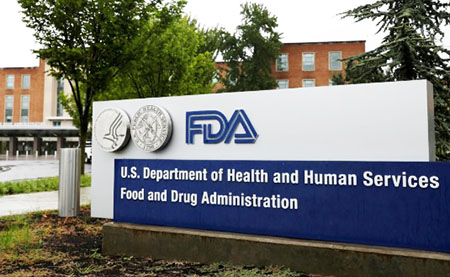Analysis by WorldTribune Staff, June 7, 2023
Thought crimes anyone? It appears the feds want not only to control the narrative, but to enlist the public to assist in doing so.
Taking a page straight out of the Chinese Communist Party (CCP) playbook, the FDA is looking for an army of snitches to tattle on anyone suspected of spreading what the agency considers “misinformation.”
 The FDA has updated its “Rumor Control” hub aimed at enlisting the snitches and claims it provides the American public with tools to identify and report on “misinformation,” Brenda Baletti noted in a June 6 analysis for The Defender.
The FDA has updated its “Rumor Control” hub aimed at enlisting the snitches and claims it provides the American public with tools to identify and report on “misinformation,” Brenda Baletti noted in a June 6 analysis for The Defender.
The updated FDA webpage, first launched in August 2022, includes a new video that defines misinformation as information that is “false, inaccurate, or misleading … spreading intentionally and unintentionally.”
“Some individuals and organizations promote opinions online disguised as fact,” the FDA site says, adding that misinformation spreads “six times faster than facts.”
Really? Six times faster. Inquiring minds want to know: has this been determined by the same people who brought you the six feet social distance rule for Covid?
According to the FDA video, individuals can determine whether something is actually true by getting the information from three types of “authoritative” sources that can be trusted to provide real facts: medical journals, a nonprofit “fact checker,” or a government website.
These are the same “trusted” sources that got so much so wrong about Covid that the Internet would suffer massive slowdowns if they were required to publish retractions on all of their “misinformation.”
“Clearly, the feds are getting nervous that their cons on the people are being recognized,” Dr. Meryl Nass wrote on her Substack.
“The federal government continues to try and fool the public into thinking misinformation is a dire problem and a crime,” Nass wrote. “Misinformation is whatever the government does not want you to know.”
According to The Associated Press, the FDA also employs a tactic known as “prebunking,” by which the agency defines something as “misinformation” before readers have an opportunity to encounter it elsewhere as possibly true.
The FDA has the ability to do this because Google “prioritizes credible websites” like the FDA’s in its searches.
Current FDA Commissioner Robert Califf previously worked at Verily, a life sciences company owned by Google’s parent company, Alphabet Inc.
In the most current version of its fact check on Covid, which is linked from the Rumor Control hub, the FDA assures readers that the Covid shots do not make people more susceptible to the latest variants of the virus and that the vaccine is safe for pregnant and breastfeeding women.
But Baletti pointed out that, “just last week, the Cleveland Clinic published a peer-reviewed study that found the more doses of COVID-19 vaccines a person receives, the higher the risk of getting the virus.”
Also, a number of recent studies “revealed striking risks to pregnant women who get the COVID-19 vaccine and identified serious flaws in the methods government agencies used to conclude they are safe,” Baletti added. “Government health officials knew about several of those studies, including Pfizer’s own clinical trial studies, before they recommended the shots for pregnant women.”
The FDA also came under fire for granting Emergency Use Authorization for the Covid injections for children ages 12-15 despite having identified that “safety signals” existed for myocarditis in young males following the jab.
“The FDA, along with the Centers for Disease Control and Prevention, withheld this information from the public,” Baletti noted.
In her Substack analysis, Nass noted that most funding the FDA uses to evaluate whether drugs are safe and effective comes from industry, and most drugs seeking approval get fast-tracked and evaluated in just six months.
Manufacturers of drugs that are dangerous can often avoid liability by working with the FDA to write the label in such a way that meets disclosure requirements.
“So if you are looking to avoid misinformation, the FDA is the last place you might go to for truth, honesty, ethics, and consideration of the public’s welfare,” Nass wrote.
US – The FDA has rolled out its ‘snitch’ page. So those following the narrative can snitch to the government about all those who question or disagree with them.
How very erm … pic.twitter.com/01mrpXFXYy
— Bernie’s Tweets (@BernieSpofforth) June 3, 2023
Membership . . . . Intelligence . . . . Publish
